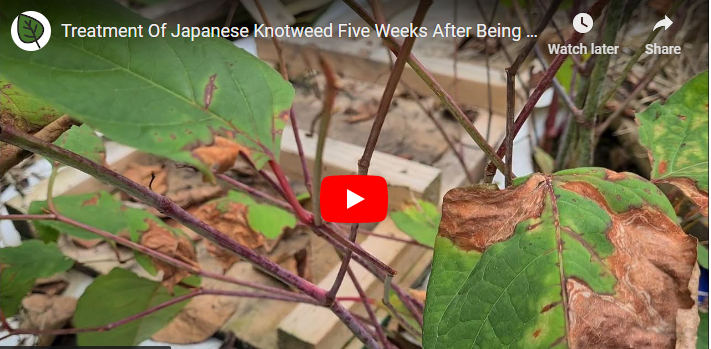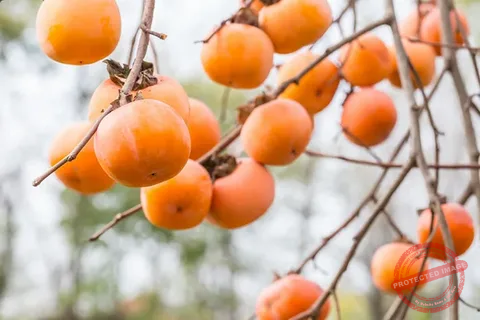Maize, also known as corn, is one of the most essential staple crops worldwide. Its versatility and extensive use make it a crucial element of the global food supply chain. To ensure healthy and abundant maize harvests, it is crucial to implement a well-structured maize fertilizer schedule.
By providing the crop with optimal nutrition at the right stages of growth, you can maximize yields and enhance overall crop quality. In this comprehensive guide, we will delve into the intricacies of developing a successful maize fertilizer schedule, covering everything from nutrient requirements to application techniques.
Maize Fertilizer Schedule: Nourishing Your Crop for Optimal Growth
Creating an effective maize fertilizer schedule requires careful consideration of the crop’s nutrient needs at each stage of its growth cycle. Let’s explore the various phases of maize growth and the corresponding fertilizer requirements.
Read Also: 12 Liquid Fertilizers for Maize: Boost Your Crop’s Growth!
Germination and Seedling Stage: Setting the Foundation
During the germination and seedling stage, the maize plant establishes its root system and develops its initial growth. Providing the right nutrients during this phase is crucial for a strong start. Here’s what you need to know:
Timing is Key:
Apply a starter fertilizer high in phosphorus (P) at planting to promote root development and early growth.
Read Also: 15 Best Fertilizers for Maize: Organic & Inorganic
Recommended Nutrient Ratio:
Opt for a fertilizer blend with a 1:1:1 ratio of nitrogen (N), phosphorus (P), and potassium (K) to ensure balanced nutrition.
Application Rate:
Apply the starter fertilizer at a rate of 2-3 pounds per 1,000 square feet or as recommended by a soil test.
Vegetative Stage: Promoting Lush Foliage
The vegetative stage is characterized by the rapid growth of leaves and stalks. To support the maize plant’s vigorous foliage development, it requires specific nutrients in adequate amounts. Here’s what you need to keep in mind:
Read Also: 15 Best Fertilizers for Carrot Organic & Inorganic: Boost Your Carrot Growth!
Nitrogen is Vital:
Maize thrives on nitrogen, so it is essential to provide an adequate supply throughout the vegetative stage. Apply nitrogen-rich fertilizers at the recommended rates to encourage robust leaf growth.
Read Also: 15 Best Fertilizers for Beans [Organic & Inorganic]
Balanced Nutrition:
While nitrogen is crucial, ensure a balanced nutrient profile by incorporating other essential elements like phosphorus and potassium. Consider a fertilizer blend with a higher nitrogen content for optimal results.
Read Also: 15 Best Fertilizer for Cabbage Organic & Inorganic
Application Techniques:
Apply the fertilizer evenly in rows, ensuring it reaches the root zone. Side-dressing the maize rows with nitrogen fertilizer is a common practice during this stage.
Read Also: 15 Best Fertilizers for Cassava Farm [Organic & Inorganic]
Reproductive Stage: Ensuring Successful Pollination
During the reproductive stage, the maize plant develops tassels and silks, leading to pollination and the formation of kernels. It is crucial to support this delicate process with the right nutrients. Here’s what you should focus on:
Read Also: 15 Best Fertilizer for Cocoa Farm [Organic & Inorganic]
Phosphorus for Flowering:
Provide adequate phosphorus to promote healthy flowering and enhance the maize plant’s ability to set kernels.
Read Also: 15 Best Fertilizers for Groundnut [Organic & Inorganic]
Potassium for Grain Filling:
Ensure sufficient potassium supply to facilitate grain filling, leading to well-developed and plump kernels.
Read Also: 15 Best Fertilizers for Onions Farm [Organic & Inorganic]
Micronutrients Matter:
Pay attention to micronutrients like zinc, boron, and manganese, as they play a crucial role in pollination and grain development. Incorporate them into your fertilizer mix as recommended.
Grain Fill and Maturation: Nurturing the Crop to Harvest
As the maize crop enters the grain fill and maturation stage, it requires specific nutrients to support the development and ripening of the kernels. Here are some essential considerations during this crucial phase:
Read Also: 15 Best Fertilizer for Sweet Potatoes Farm [Organic & Inorganic]
Monitor Nitrogen Levels:
While nitrogen remains important during this stage, it is crucial to manage its availability to prevent excessive vegetative growth and promote proper grain fill. Adjust the nitrogen application rates accordingly based on the crop’s needs and soil conditions.
Potassium for Kernel Quality:
Potassium plays a vital role in enhancing kernel quality and improving the maize plant’s ability to withstand stress. Ensure an adequate supply of potassium throughout this stage.
Read Also: 15 Best Fertilizers for Okra Farms [Organic & Inorganic]
Manage Watering:
Proper irrigation management is crucial during the grain fill and maturation stage. Adequate water availability ensures optimal nutrient uptake and supports grain development. Avoid water stress, as it can negatively impact yields and kernel quality.
How often should I fertilize my maize crop?
It depends on the specific growth stage and the nutrient requirements of your maize crop. Typically, a maize fertilizer schedule involves multiple applications throughout the growing season, focusing on key stages such as planting, vegetative growth, reproductive phase, and grain fill.
Read Also: Fertilizer Schedule for Apple Trees: Optimal Nutrition for Bountiful Harvests
Can I use organic fertilizers for maize cultivation?
Yes, organic fertilizers can be used for maize cultivation. They provide slow-release nutrients and contribute to soil health. However, it is crucial to ensure that organic fertilizers contain the required nutrients in adequate amounts to meet the maize crop’s needs.
Should I conduct a soil test before developing a fertilizer schedule?
Conducting a soil test is highly recommended. It helps determine the nutrient levels and pH of your soil, enabling you to tailor your fertilizer application to meet the specific needs of your maize crop.
Read Also: Fertilizer Schedule for Sugarcane: Maximizing Yield with Proper Nutrient Management
What is the ideal nitrogen-to-phosphorus ratio for maize cultivation?
The ideal nitrogen-to-phosphorus ratio for maize cultivation is generally 1:1 or 1:1.5, depending on the specific soil conditions and the stage of crop growth. However, it is best to conduct a soil test to determine the optimal nutrient ratio for your specific field.
Read Also: Fertilizer Schedule for Lawns: A Comprehensive Guide to Achieving a Lush, Green Yard
How can I prevent nutrient runoff and environmental pollution?
To prevent nutrient runoff and environmental pollution, apply fertilizers precisely according to recommended rates and techniques. Avoid over-application, as excess nutrients can leach into water bodies. Incorporating conservation practices like contour plowing and buffer strips can also help minimize nutrient loss.
Read Also: Fertilizer Schedule for Tomatoes: Maximizing Your Tomato Harvest
Can I use foliar fertilizers for maize plants?
Yes, foliar fertilizers can be used as a supplementary nutrient source for maize plants. They are sprayed directly onto the leaves, providing a quick and targeted nutrient boost. However, foliar fertilizers should not replace the primary soil-applied fertilizers in a well-rounded maize fertilizer schedule.
Read Also: 15 Best Fertilizers for Tobacco [Organic & Inorganic]
Conclusion
Developing an effective maize fertilizer schedule is crucial for optimizing crop growth, maximizing yields, and ensuring high-quality maize harvests. By understanding the specific nutrient requirements at each stage of the maize plant’s growth cycle, you can tailor your fertilizer application to meet those needs.
Consider factors such as timing, nutrient ratios, and application techniques to provide your maize crop with the best possible nutrition. By implementing a well-planned fertilizer schedule, you can enhance your maize cultivation success and contribute to a bountiful harvest.



![How To Buy Farmland For Investment [Farmer’s Guide]](https://agrolearner.com/wp-content/uploads/2024/01/Farmland.jpg)